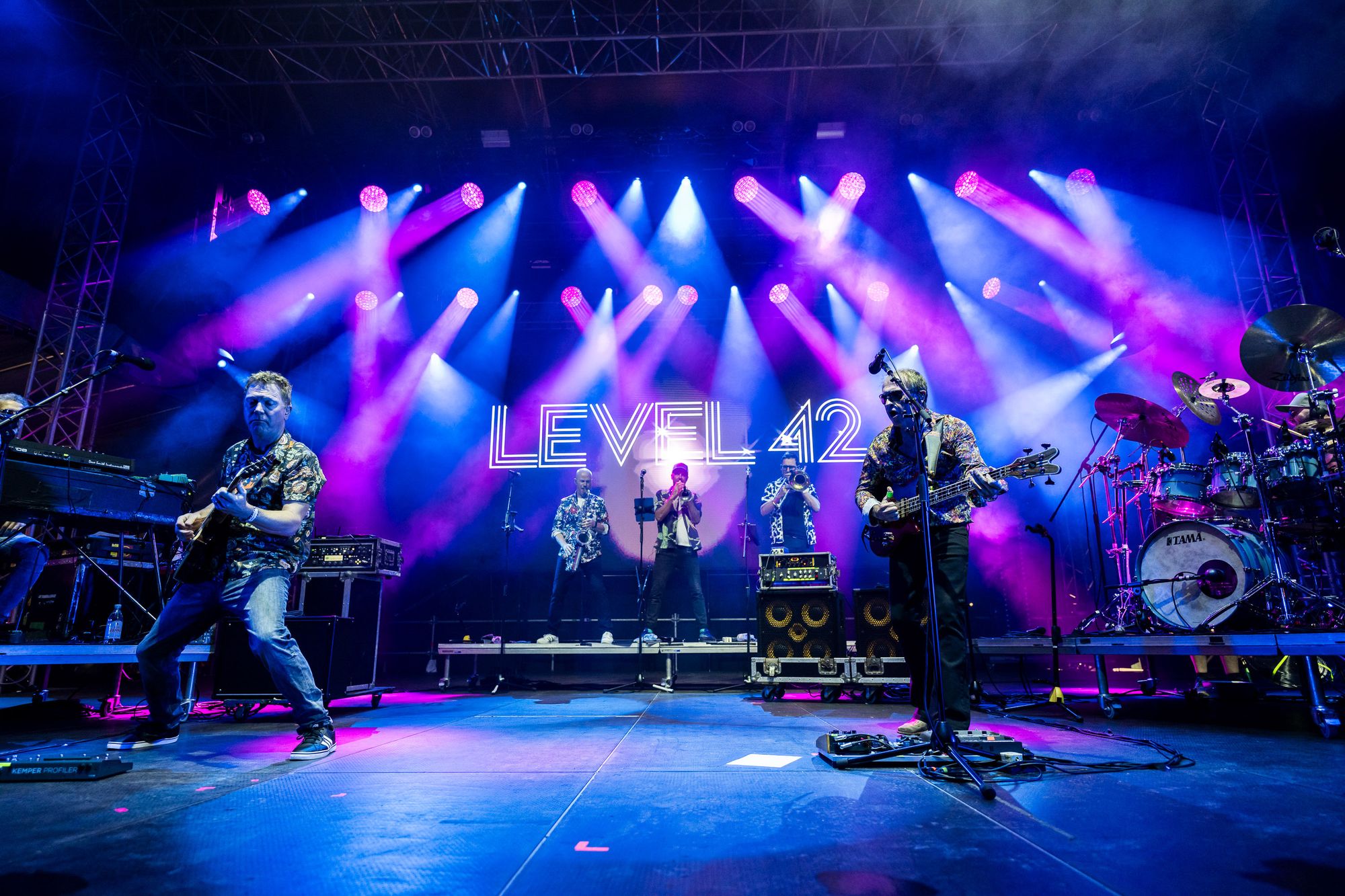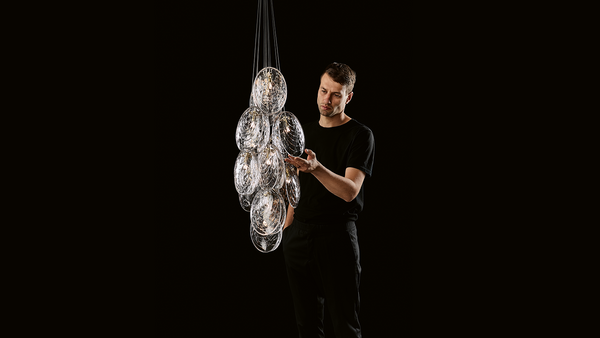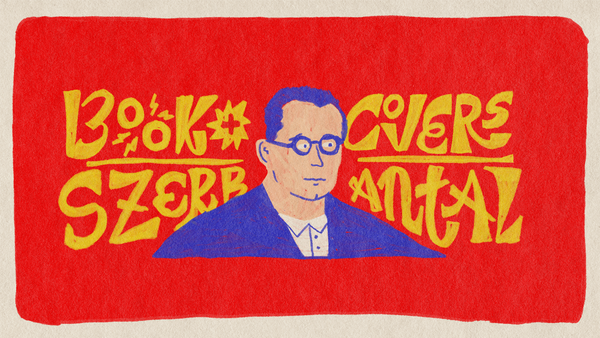We spoke with Mark King, the founder and frontman of Level 42, about music, life, and the universe at the 11th Paloznaki Jazzpiknik.
Thank you for taking the time to talk to us. I'm going to start with a question that might have been asked before, but I'm curious that 42 does it refer to the answer to everything in the universe?
Yes, The Hitchhiker's Guide to the Galaxy.
What is the question?
Nobody knows.
What is your take?
The question is, why are we here? Why do we exists? What's the point of the universe? But because people don't understand the question. When the computer works out, the answer is 42, but we don't understand the question.

What do you think the question is?
I don't know. I tell you what I do know. I think that music is a spiritual medium that ties everybody together. And you see, it doesn't matter where we travel in the world. We go to a field, we come to a field here in Hungary, and there are people that just want to have a nice time, and they're full of love and they're enjoying the music and just the music brings everyone together. They're not here just to see us, they're not here just to see Incognito. It's the experience. It's the unity of being together with people who like the same thing as you do. And that's beautiful.
Why did you decide to pursue this specific genre of music? What was your early experience in music?
Well, it kind of shows us, in a way because I started out as a drummer. Phil Gould was a fantastic drummer, and we grew up together on the Isle of Wight. And Mike Lindup was studying drums at the Guildhall School of Music. He was studying percussion there. So we got together as friends because of our love of drums. And so therefore we were listening to a lot of bands and a lot of music that featured great rhythm sections, obviously not just us.
Can you name a few?
Yeah, absolutely. I mean, a big hero for us at that time was Billy Cobham. And he played in a bank with the Mahavishnu Orchestra and that was John Mclaughlin's band. But the other musicians, Jan Hammer and Jerry Goodman on violin, Rick Laird on bass, they were amazing musicians. And another hero of ours at the same time was Lenny White. And he was the drummer in a band called Return to Forever, which was Chick Corea and Stanley Clarke and originally Bill Connors and then Al Di Meola on guitar. And we were sort of coming in this way, but also to not ignoring the fact that we've grown up listening to The Beatles and Rolling Stones and Stevie Wonder and Earth, Wind & Fire and all of these other amazing kinds of music and sort of styles of music. But you see, I think that we always saw it as, well, it's just music. We're playing music. And if you think that when the band began, which was at the end of 1979, 1980 really, in the UK, we just had four years of heavy punk was the thing that turned the music word on its head. Punk is something that I've come to appreciate much more looking back on it than I did at the time. At the time, I thought it was like offensive, because we really like sort of great players. And yet, it seemed to me that if the worse you could play your instrument, the better you do in punk. It was the idea. And I didn't really get that idea, now I get the idea completely. And I think it's an incredibly liberating thing that you get these amazing artists that just play for the joy of playing. And it doesn't matter. They don't let any of this get in the way, which is cool.

Does that inspire you?
It does, yeah, it inspires me a lot because the, you know, there are some good things about getting older, not many, but one of the good things is that you do see things more clearly. Because you have the benefit of hindsight and somehow your blink has come off. When you're 18, 19, 20 years old, you are so focused on your world and your world is, although to you it's your entire world, it's in fact this wide. It's so narrow. But as you get older and you experience more things and you hear more things and you meet other musicians and stuff. It gradually widens and widens and widens and you start realizing that, oh my God, there's just amazing music everywhere of all kinds. And there's only two kinds of music, as somebody once said, and that's good music and bad music.
And there is bad music too. So there's no doubt that there is bad either.
So does that recognition of punk actually creating value contributes to what you are doing on your instruments?
Well, I think it must have had an effect. It must have had an influence because I was a fan of The Stranglers and Jean-Jacques Burnel on bass in there. He really used to drive the band along. And he always, said that Level 42 would be a good band if we got a bass player. Because he said, you don't play bass. He said, I play bass. And I know what he means. I kind of understand that. So I find all kinds of bass players. My first sort of bass hero would have been Jack Bruce played in Cream and of course all the incredible solo work that he did.
And that was very much rock oriented and was a driving bass. So that's something that I think is, I've carried through. And also the fact that I'm, I really would have loved to play drums. But Phil was better.
And because Mike plays keyboards great, and Mike's really clever. I'm stupid, so you have the place to get up.

How do you see the music scene in Europe specifically?
Yeah, in Europe, I don't think it's as exciting as it is in the US, I'm really excited by the younger artists that I see coming out, particularly California at the moment. Guys like Louis Cole and Nate Wood and Kneebody and all of these incredible musicians that I find really, really exciting. Having said that, and you go to South America, Pedro Martins is just the most amazing guitarist. But then you come here and Italy have Matteo Mancuso, who is just phenomenal. And it's funny, because in a way, music's a bit like the Olympics, is that every four years, because you think, oh my God, somebody's broken 10 minutes and as you say, Bob, and he's run nine minutes and 59 seconds or something. I think this will never be beaten. But, you know. That's pretty good. The next Olympics, somebody gets just that a little bit better. So the bar goes up and up and up and up. And I think that's a really positive thing. That's what should happen, is that music should improve. The players can do it. If I think back to when I began, it was very hard even to get vinyl where I lived on the Island of Wight. So getting a record that you'd heard about or that you'd heard a bit on the radio, took a month to get hold of this one. record. And now, you can just sit there and you can get anything and everything. But not only that, you can look at almost the whole history of music and see footage. You can see footage of Miles Davis. You can see Jimi Hendrix. You can see all of these incredible musicians. And me, I just have time to imagine it, because there was no way, living on this little island, that I get the, the chance to see these guys, you know. So, the kids now are lucky and that's great because I think that teachers, the best thing a teacher can do for a student is not to say put your finger here, or put your finger here. It's that they play and the student, they go, a light goes on and they go "yeah i get it" youu don't have to say put your finger in it. It's just that if you know, you know. And that's the great thing. So to have all of these valuables treasures online now that you can look at for young musicians. It makes me shiver to think of how great that future musicians will be.
Just one last question. I think you kind of answered it, but our readers like to hear about artist's recommendations by artists. You mentioned a few names.
Oh, yeah. Well, I would hardly recommend those guys.
If you're looking to go down the sort of slightly more jazz side of things. Look at Ben Wendel and Nate Wood and the band they have called Kneebody. And if you like it just a bit on the funkier side, you know, Louis Cole is fantastic and Genevieve Artadi, who sings with his band. And Genevieve Artadi's partner is Pedro Martins who is just a phenomenal guitarist. And when I listened to Pedro play, I've been lucky enough to play with some great guys. I grew up listening to John Mclaughlin, i got to play and work with Alan Holdsworth, we toured for a bit with him. And I hear all of this in Pedro Martins. I hear all of those guys. And that's just brilliant. Matteo Mancuso is just a phenomenal task. So these are guys I would recommend listening to.

Photos: Márton Mónus
Level 42 | Instagram
Paloznaki Jazzpiknik | Web | Facebook | Instagram

Glass is still relevant even in the age of new high-tech materials | The (Czech) glass phenomenon











